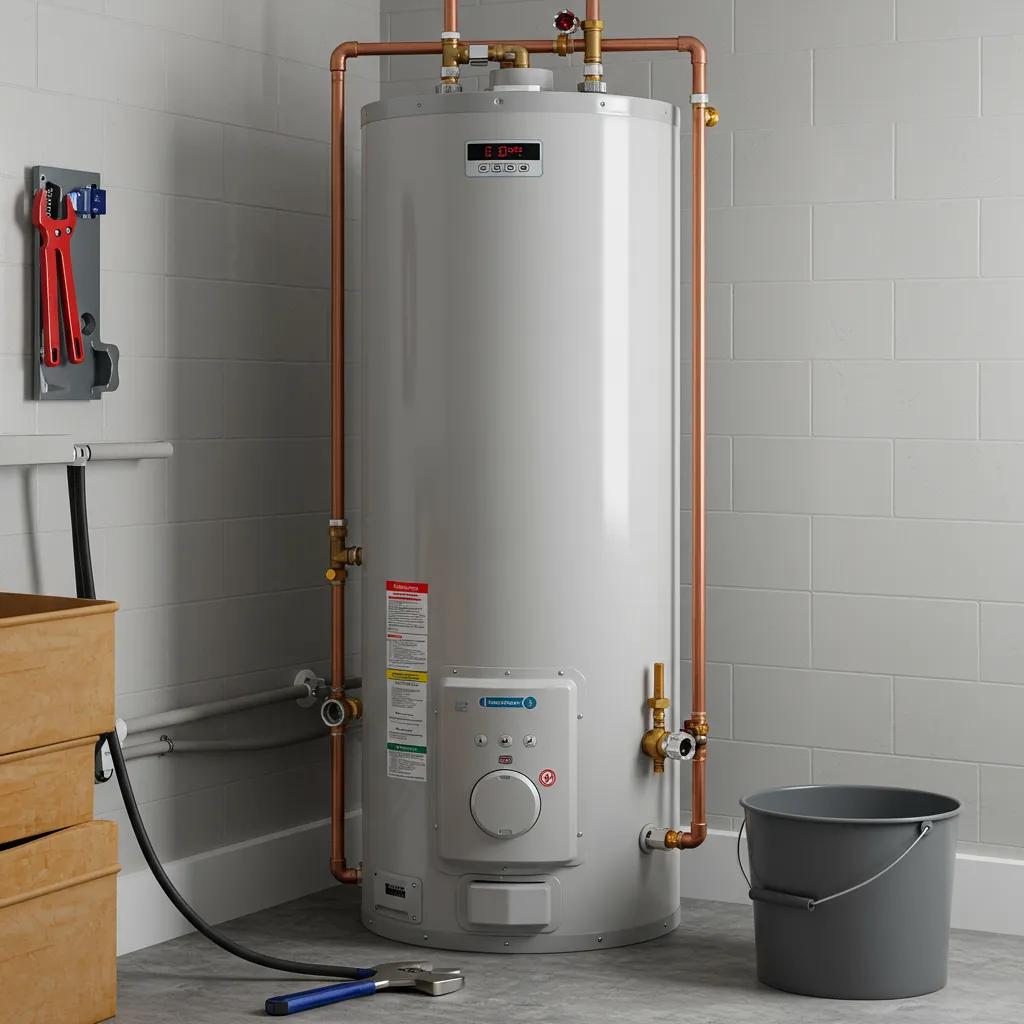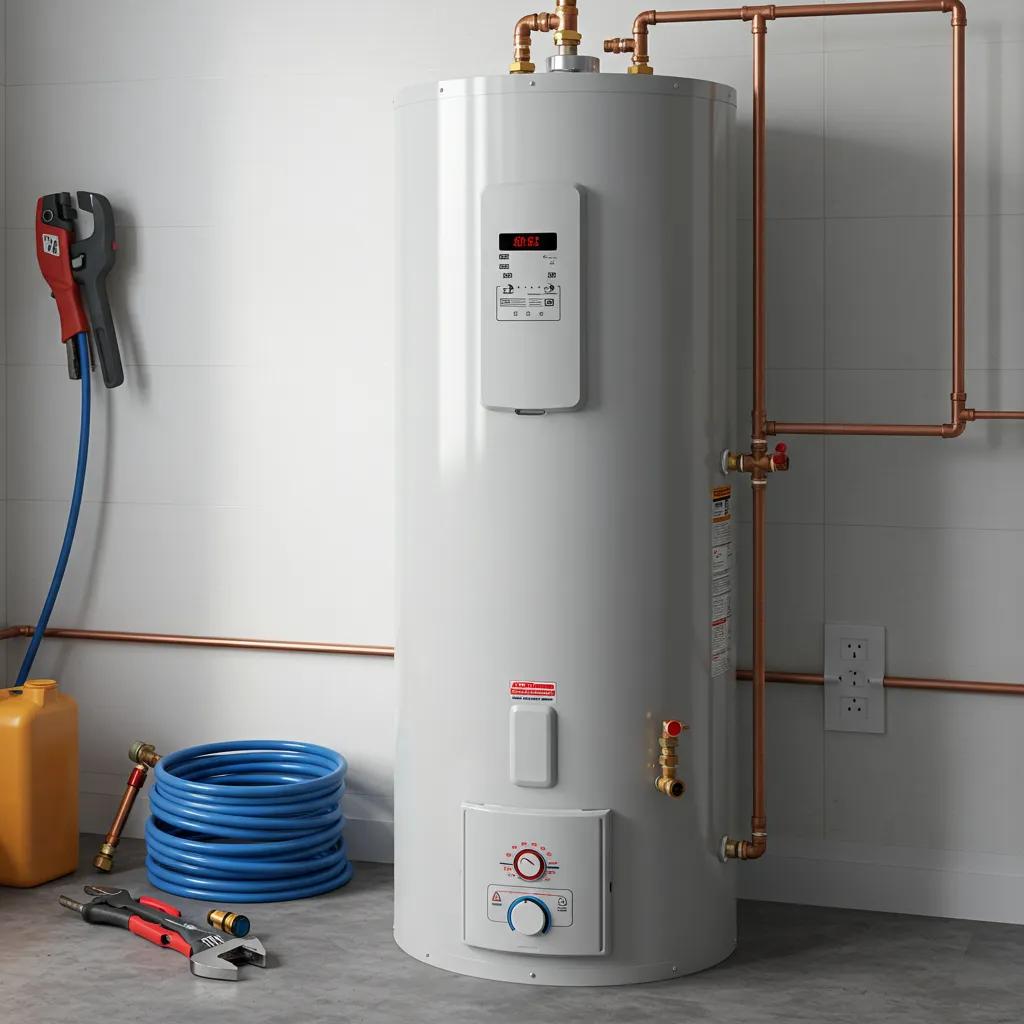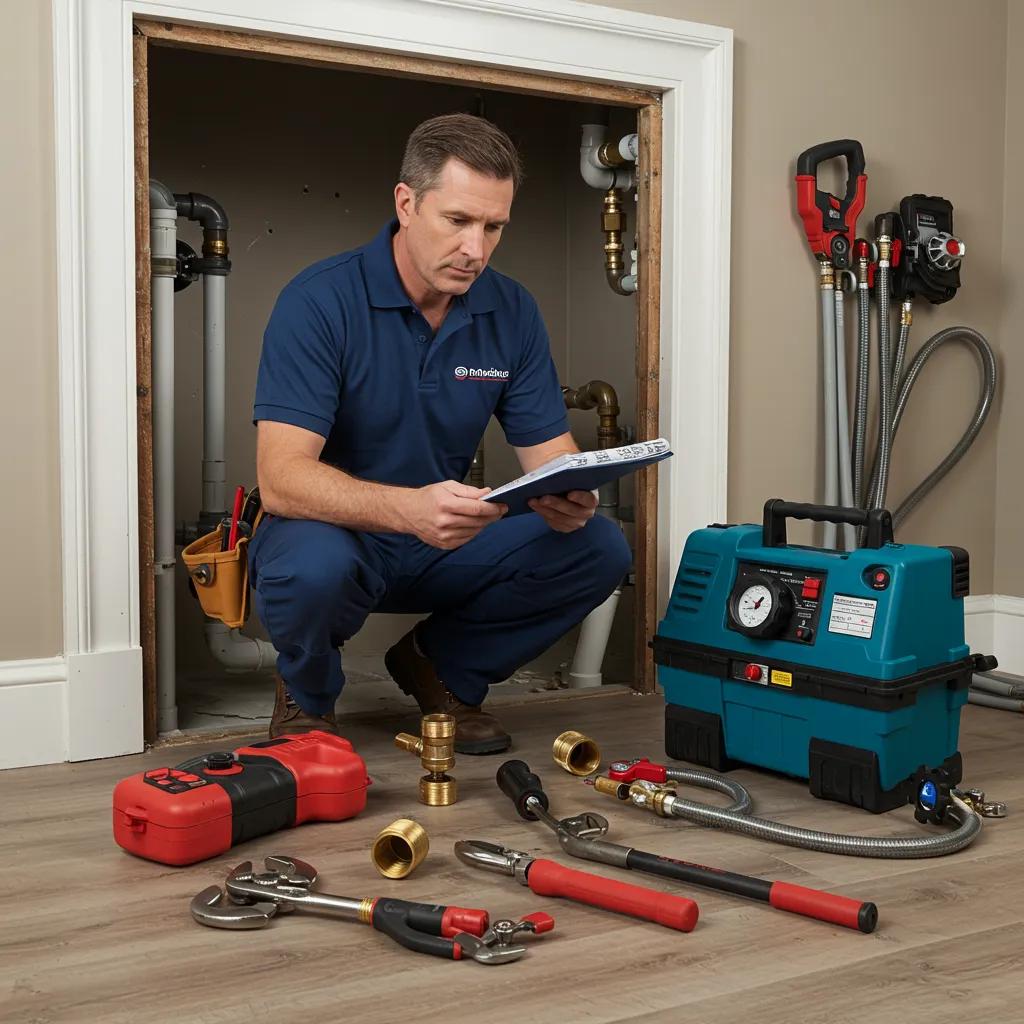How to Diagnose and Fix Strange Sounds Coming From Your Plumbing System in Erie, PA
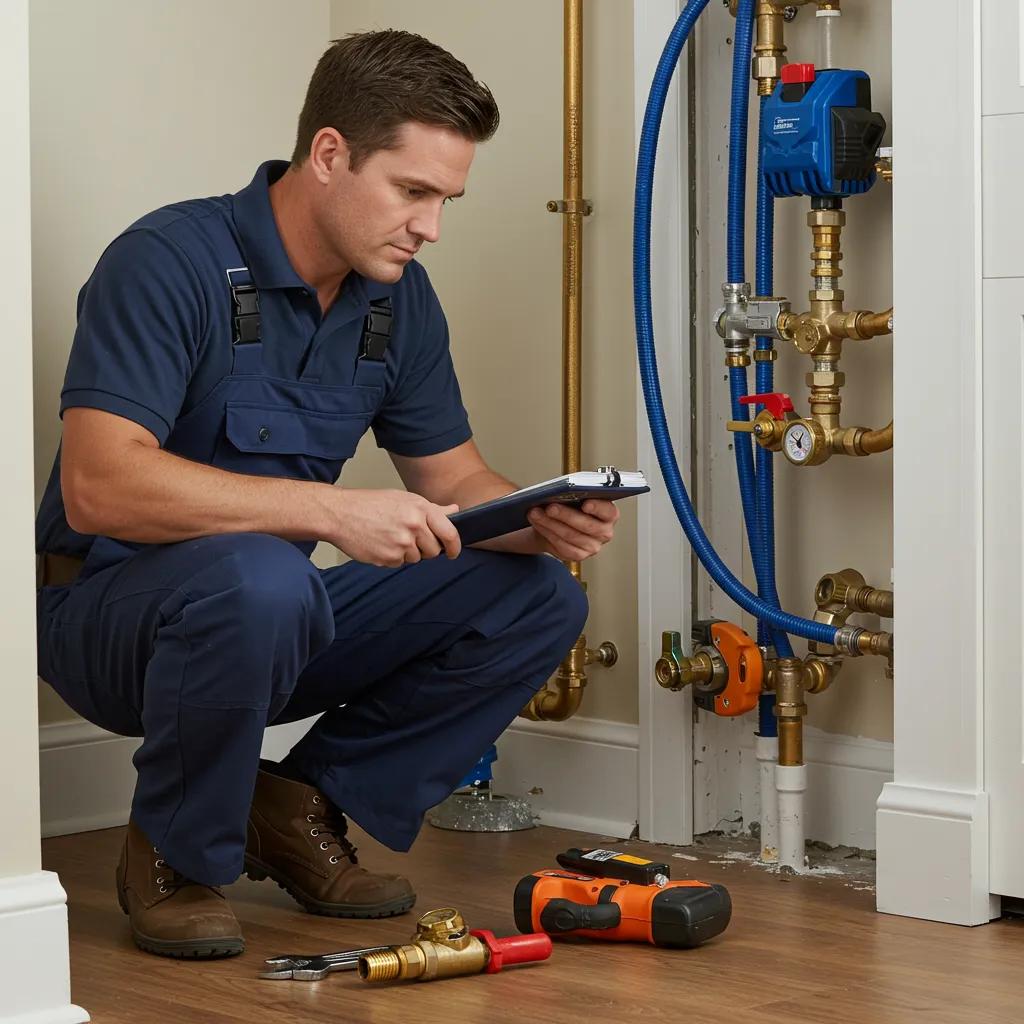
Identifying and addressing odd noises in your home’s plumbing system can prevent costly damage, protect fixtures, and restore peace of mind. In Erie, PA, homeowners and business owners frequently encounter banging, gurgling, whistling, rattling, and water‐heater noises that signal underlying issues. This comprehensive guide explains the most common plumbing sounds, safe DIY diagnostic steps, and professional remedies offered by C. Carlin Plumbing—Erie’s trusted local experts since 1993. You will learn what each noise means, how to pinpoint its source, when to apply temporary fixes, why ignoring these sounds risks structural harm, and how licensed technicians deliver lasting solutions.
What Are the Most Common Strange Plumbing Noises and What Do They Mean?
Strange plumbing noises often reflect specific malfunctions within pipes, drains, valves, or appliances. Recognizing the type of sound—banging, gurgling, whistling, rattling, or rumbling—reveals the root cause and guides corrective action. Early identification preserves pipe integrity, prevents leaks, and avoids fixture damage.
What Causes Banging Pipes and the Water Hammer Effect?
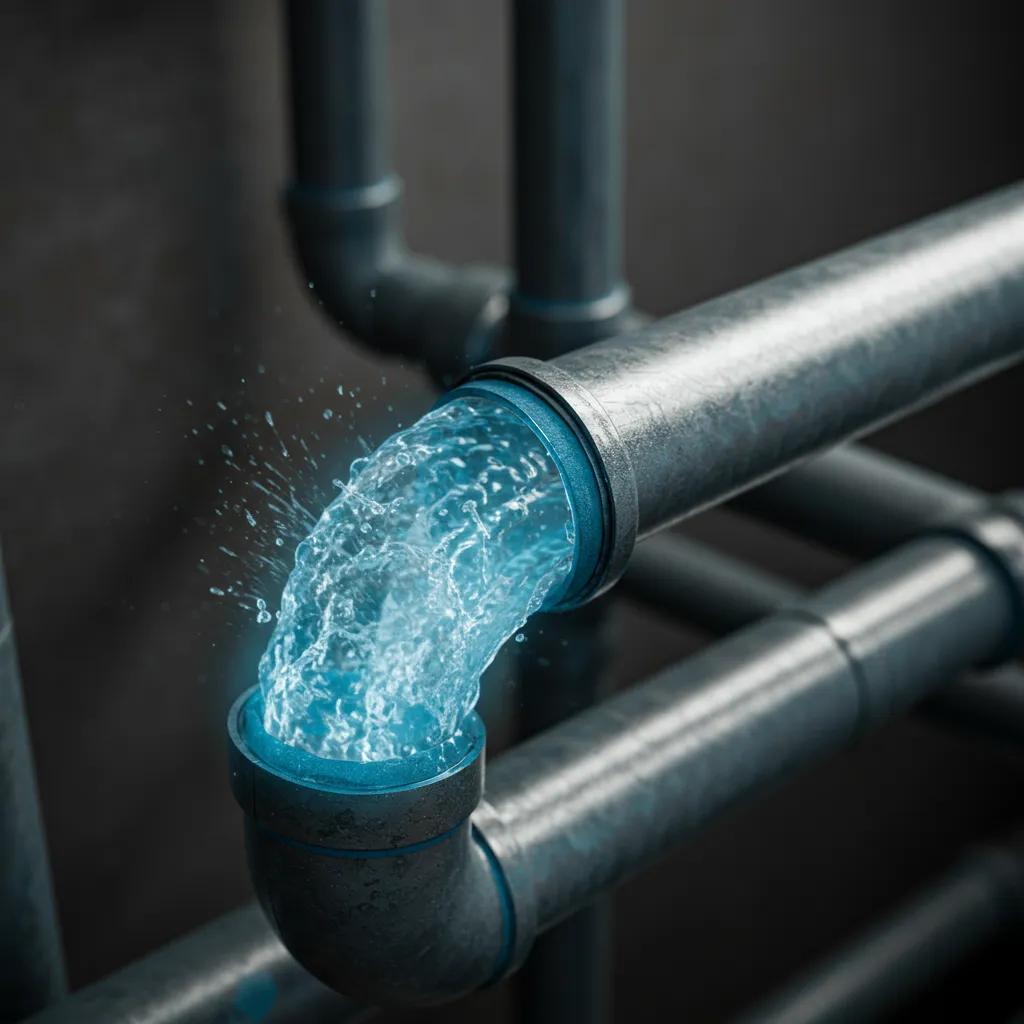
Banging pipes, known as water hammer, occur when moving water abruptly stops or changes direction.
- Sudden valve closures create shock waves.
- High water pressure amplifies impact.
- Inadequate arrestors or loose strapping let pipes collide.
Proper arrestor installation and pressure regulation eliminate repeated collisions and protect fittings.
Why Do Drains and Toilets Make Gurgling Sounds?
Gurgling indicates trapped air or partial blockages.
- Clogs in P-traps or main sewer lines draw air through drains.
- Vent-pipe blockages prevent smooth airflow, causing vacuum noises.
- Improper slope in drain runs can trap water and air pockets.
Clearing vents, snaking sewer lines, and verifying pitch restore normal flow.
What Leads to Whistling or Squealing Pipes?
Pipes whistle when water under pressure forces past constricted openings.
- Excessive supply pressure stresses valves and fittings.
- Worn faucet washers or clogged aerators create narrow passages.
- Partially closed shut-off valves induce high‐velocity flow.
Adjusting regulators, replacing washers, and cleaning aerators quell piercing sounds.
What Causes Rattling or Vibrating Pipes in Your Home?
Rattling arises from loose pipe straps or thermal expansion.
- Copper and plastic pipes expand when heated, rubbing against framing.
- Loose hangers or missing insulation let pipes vibrate.
- Nearby fixtures or objects can resonate with flow vibrations.
Securing straps, adding insulation sleeves, and isolating pipes silence persistent rattles.
Why Is My Water Heater Making Strange Noises?
Water heaters rumble or pop due to sediment buildup and element wear.
- Mineral deposits insulate the tank bottom, boiling water pockets.
- Corroded heating elements overheat localized areas.
- Scale accumulation reduces efficiency and causes popping as steam escapes.
Flushing the tank and inspecting elements eliminate sediment and restore quiet operation.
How Can Homeowners Diagnose Plumbing Noises Themselves Safely?
DIY diagnosis starts with careful observation, eliminates hazards, and isolates the noise source. A systematic approach empowers homeowners to identify issues without specialized tools.
What Are Simple Steps to Identify the Source of Plumbing Noises?
Begin by listening at different times—first morning draw, faucet shut-off, and heater cycles.
- Locate the loudest spot.
- Trace pipes near walls and ceilings.
- Note when noises occur (flow start/stop, idle periods).
- Inspect visible fittings for loose straps or leaks.
- Document patterns before any fix.
This method ensures accurate pinpointing and informs temporary or professional remedies.
How to Check for Water Hammer Without Professional Tools?
Homeowners can test for water hammer by quickly shutting a faucet and noting any knock.
- Close valves fully, then open fast to reproduce banging.
- Place towels around pipes to mute noise and confirm location.
- Watch for abrupt jolts or visible pipe movement.
This simple test verifies the presence of shock waves needing arrestors or pressure adjustments.
How to Inspect Drains and Vents for Gurgling or Blockages?
Safely examine traps and vent stacks:
- Remove drain covers to look for surface debris.
- Pour water through sinks to observe airflow sounds.
- Check roof vents (from safe vantage) for nests or leaves.
- Run a garden hose slowly down the vent to clear minor blockages.
Confirming unobstructed vents prevents sewer-gas backups and recurring gurgles.
When Is It Safe to Attempt Temporary Fixes on Noisy Pipes?
Temporary fixes suit non-pressurized, minor issues only.
- Tightening loose straps and adding padding around pipes.
- Cleaning faucet aerators and replacing washers under minimal flow.
- Flushing water heater to remove surface sediment.
Always shut off main valves, relieve pressure, and avoid electrical contact near plumbing.
What Are the Risks of Ignoring Strange Plumbing Sounds?
Ignoring odd noises risks escalating damage:
- Water hammer can loosen joints, causing slow leaks.
- Blocked vents lead to sewer-gas infiltration and health hazards.
- High pressure shortens fixture lifespan and voids warranties.
- Heater noise signals corrosion, risking tank failure.
Prompt diagnosis and repair safeguard property integrity and health.
What Professional Solutions Does C. Carlin Plumbing Offer for Noisy Plumbing Systems in Erie, PA?
C. Carlin Plumbing applies local expertise and licensed technicians to resolve all noise‐related plumbing issues. Their Erie-based team uses proven equipment and transparent estimates to deliver long-lasting comfort and reliability.
How Does C. Carlin Plumbing Fix Water Hammer and Banging Pipes?
C. Carlin Plumbing installs water hammer arrestors and pressure-reducing valves tailored to system demands. Technicians:
- Evaluate supply pressure and system layout.
- Mount arrestors near problem valves.
- Secure and insulate pipes to prevent recurrence.
This approach restores quiet flow and protects fittings.
What Drain Cleaning and Sewer Repair Services Address Gurgling Noises?
Advanced drain-cleaning machines and CCTV inspections clear stubborn clogs and vent obstructions. Services include:
- Mechanical snaking of P-traps and main drains.
- High-pressure hydro-jetting for grease and scale removal.
- Vent-stack clearing to reestablish proper airflow.
Comprehensive sewer repairs eliminate air pockets and restore silent drainage.
How Are Whistling Pipes Diagnosed and Repaired by Licensed Technicians?
Licensed plumbers measure inlet pressure, inspect valves, and test fixture performance. They:
- Adjust or replace pressure regulators.
- Swap out worn washers, cartridges, and aerators.
- Realign partially closed supply stops.
These steps balance flow and extinguish whistle-inducing turbulence.
What Are the Solutions for Rattling Pipes and Thermal Expansion Issues?
Technicians pinpoint rattles with acoustic tools, then:
- Replace or reposition pipe straps.
- Wrap pipes in vibration-damping insulation.
- Add expansion loops or saddles where needed.
Professional securing and insulation ensure stable, silent piping.
How Does C. Carlin Plumbing Handle Water Heater Noise Diagnosis and Repair?
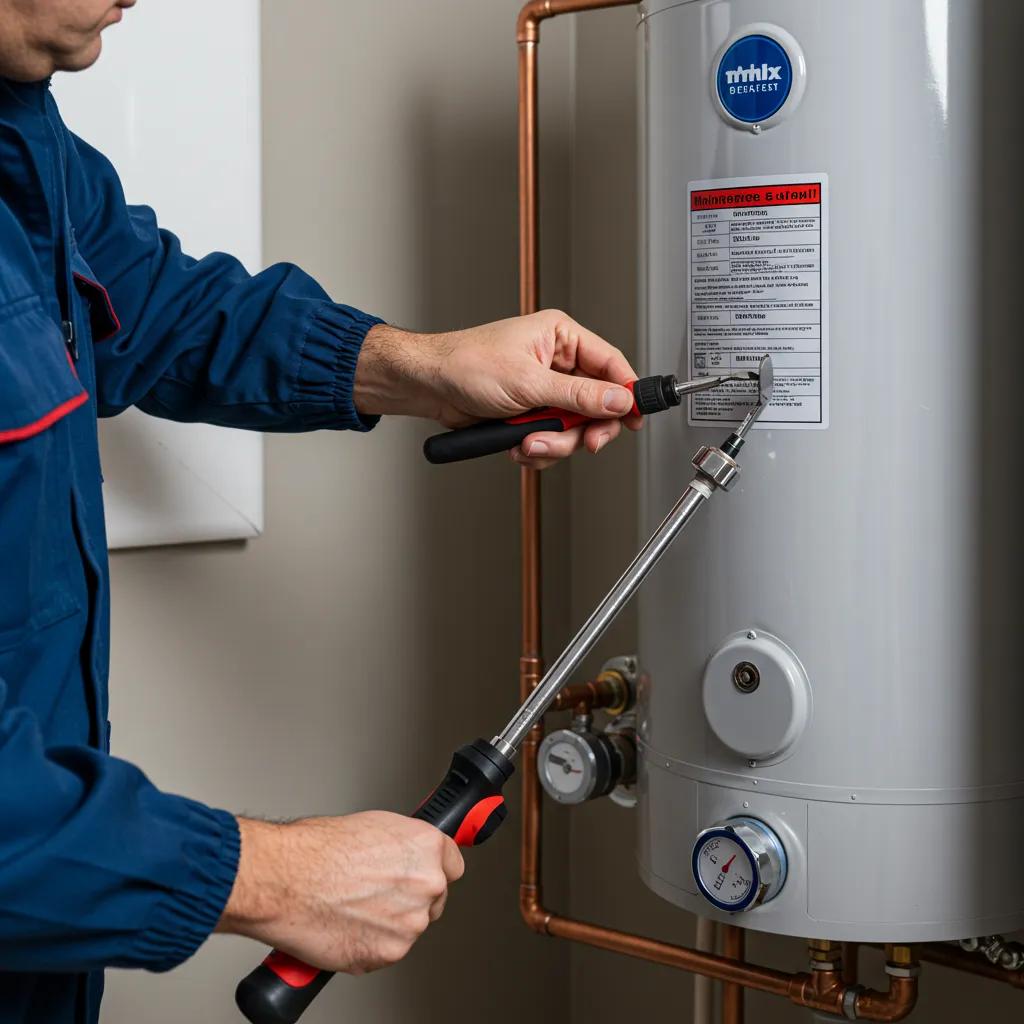
Technicians perform full water heater service:
- Drain and flush tanks to remove scale.
- Inspect and replace heating elements.
- Test temperature and pressure relief valves.
This thorough process renews heater efficiency and eliminates popping.
When Should You Call a Professional Plumber for Strange Plumbing Noises?
Professional intervention is required when DIY tests reveal persistent or complex symptoms that risk damage or safety.
What Are Warning Signs That DIY Troubleshooting Isn’t Enough?
Call an expert if you observe:
- Recurring banging despite arrestors.
- Gurgles linked to sewer-gas odors.
- Whistles at multiple fixtures.
- Visible pipe movement or leaks.
- Heater noises after flushing efforts.
These signals indicate deeper system issues best handled by licensed technicians.
How Can Professional Diagnosis Prevent Costly Plumbing Damage?
Expert assessment uncovers hidden corrosion, improper pipe sizing, and systemic pressure imbalances. By addressing root causes, professionals prevent:
- Burst joints and water loss.
- Premature fixture replacement.
- Structural water damage.
- Health risks from sewer-gas exposure.
Investing in expert diagnosis saves thousands in future repairs.
Why Choose C. Carlin Plumbing for Emergency and Same-Day Plumbing Noise Repairs?
As Erie’s locally operated specialist since 1993 with 150 years of combined team experience, C. Carlin Plumbing offers:
- Same-day emergency response.
- Transparent, fair estimates with no hidden fees.
- Licensed, insured technicians committed to customer care.
- Comprehensive warranties on parts and labor.
Their proven reliability restores quiet plumbing fast.
What Are the Typical Costs and Estimates for Plumbing Noise Repairs in Erie, PA?

How Can You Prevent Strange Plumbing Noises in Your Home?
Regular maintenance and mindful operation keep piping systems quiet, efficient, and durable.
What Regular Maintenance Helps Avoid Water Hammer and Pipe Noises?
Maintain stable pressure and smooth flow by:
- Installing a pressure‐reducing valve.
- Checking and testing water hammer arrestors annually.
- Tightening loose straps and hangers.
- Exercising shut-off valves to prevent stiffness.
Proactive upkeep stops banging before it starts.
How Does Proper Drain and Vent Maintenance Reduce Gurgling Sounds?
Consistent cleaning and airflow checks ensure silent drainage:
- Schedule professional hydro-jetting every 1–2 years.
- Clear vent stacks of debris seasonally.
- Use enzyme treatments monthly to prevent buildup.
This regimen keeps traps and vents clear of blockages.
What Are Best Practices to Avoid Whistling and Squealing Pipes?
Maintain balanced flow and component health with:
- Annual pressure regulator inspections.
- Periodic aerator and cartridge replacements.
- Gentle valve operation to prevent seat damage.
These simple habits preserve smooth, whisper-quiet water delivery.
How Can Pipe Securing and Insulation Prevent Rattling Noises?
Silence vibrations and thermal shifts by:
- Using cushioned straps on all exposed runs.
- Applying foam insulation sleeves to hot and cold lines.
- Incorporating expansion loops in long copper runs.
Effective isolation and expansion control eliminate rattles.
What Water Heater Care Prevents Rumbling and Popping Sounds?
Extend quiet heater life through:
- Annual tank flushing to remove sediment.
- Replacing sacrificial anode rods every 3–5 years.
- Testing relief valves and element condition regularly.
Routine service maintains efficient, silent heating.
What Are the Most Frequently Asked Questions About Plumbing Noises in Erie, PA?
Why Do My Pipes Make Noise When Water Runs?
Noises during flow often indicate pressure surges, loose fittings, or partial obstructions. Correcting pressure and securing pipes restores smooth operation.
How Do I Stop My Pipes from Banging or Knocking?
Installing water hammer arrestors, regulating supply pressure, and tightening straps eliminate sudden shock waves that cause knocking.
What Causes Gurgling in Drains and How Can I Fix It?
Gurgling stems from air pockets in clogged traps or blocked vents. Clearing obstructions and verifying proper venting reestablishes uninterrupted drainage.
What Causes Whistling in Pipes and How Is It Resolved?
High velocity through narrow openings—valves or aerators—produces whistling. Adjusting regulators and replacing worn components opens flow paths and silences pipes.
When Is It Time to Call a Plumber for Noisy Pipes?
Persistent, multi-fixture noises, leakage, or signs of corrosion demand professional inspection. Rapid response prevents escalation and property damage.
How Does Local Water Quality and Erie, PA Home Plumbing Affect Noise Issues?
What Plumbing Challenges Are Common in Older Erie County Homes?
Homes built before 1980 often feature galvanized or undersized copper piping prone to corrosion, scale buildup, and poor flow, leading to frequent banging and gurgling.
How Does Erie’s Water Pressure Impact Plumbing Noise Frequency?
Municipal pressure can exceed optimal levels, stressing fittings and valves. Pressure-reducing regulators tailored to local mains stabilize system performance and prevent noise.
What Local Plumbing Codes Influence Noise Prevention and Repairs?
Pennsylvania codes mandate pressure regulator installation for supply services and backflow prevention on specific fixtures—standards that support long-term quiet operation.
How Has C. Carlin Plumbing Addressed Local Plumbing Noise Cases?
In recent Erie projects, C. Carlin Plumbing’s team installed custom arrestor arrays in century-old homes, corrected sewer-vent alignments in commercial properties, and optimized heater maintenance for multi-unit residences—delivering sustainable noise relief and customer satisfaction.

